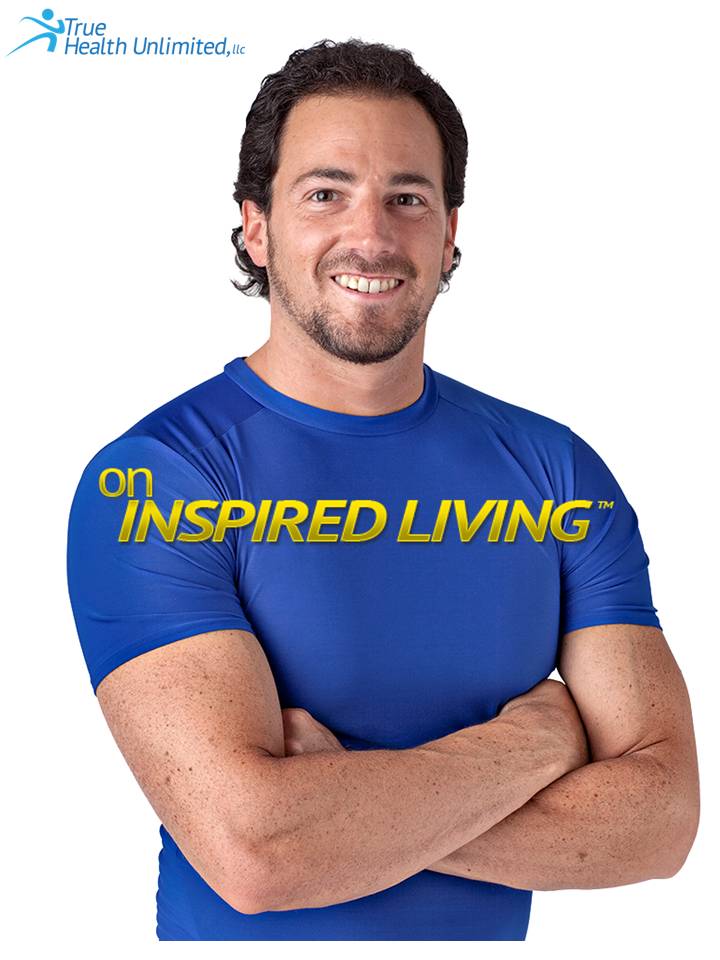 Just recently, I finished reading Stephen Post, PhD, and Jill Neimark’s intriguing book, Why Good Things Happen to Good People. Along with many positive messages, Why Good Things Happen to Good People shares exciting new research that proves the link between doing good and living a longer, healthier, happier life. Since I liked the book so much, I decided to learn more about the lead author in hopes that maybe he’d be willing to participate in our Guest Expert Q & A.
Just recently, I finished reading Stephen Post, PhD, and Jill Neimark’s intriguing book, Why Good Things Happen to Good People. Along with many positive messages, Why Good Things Happen to Good People shares exciting new research that proves the link between doing good and living a longer, healthier, happier life. Since I liked the book so much, I decided to learn more about the lead author in hopes that maybe he’d be willing to participate in our Guest Expert Q & A.
In the process of researching Dr. Post, I discovered that he has an incredible track record highlighted by appearances on The Daily Show, John Stossel, 20/20 and Nightline. I also came to realize that his best-selling book was just released last year – The Hidden Gifts of Helping: How the Power of Giving, Compassion, and Hope Can Get Us Through Hard Times. I just ordered it today and I’d recommend any of his books to all of our newsletter subscribers who enjoy positive messages supported by research.
With such a line of work to his credit, I was not sure if I’d ever hear back from Dr. Post. But, after sending him an e-mail, to my surprise, he replied within a few short hours and agreed to answer some questions for our Guest Expert Q & A. So here it is…
Welcome Dr. Post! I am very thankful and humbled by your willingness to take time away from your busy schedule to answer some questions about your message and your work.
Dave’s Q: In my field of work, most of my clients are aware of the health benefits associated with regular exercise and a healthy diet, but they may not be as familiar with the health benefits of forgiveness, compassion, benevolent love, and volunteerism. Can you briefly summarize some of the health benefits and findings associated with the practice of forgiveness, compassion, benevolent love, volunteering, etc.?
Dr. Post’s A: In a nut shell, 2010 was an exciting year for research on health, happiness and helping others. For starters, in the United Healthcare/Volunteer Match Do Good Live Well Study, an online survey of a national sample of 4,582 American adults 18 years and older, these remarkable facts stand out:
41% of us volunteer an average of 100 hours per year (men 39%, women 42%; Caucasian 42%, African-American 39%, Hispanic 38%
69% of us donate money
68% of volunteers agree that volunteering “has made me feel physically healthier,”
92% that it “enriches my sense of purpose in life,”
89% that it “has improved my sense of well-being,”
73% that it “lowers my stress levels,”
96% that it “makes people happier,”
77% that it “improves emotional health,”
78% that it helps with recovery “from loss and disappointment”
Volunteers have less trouble sleeping, less anxiety, less helplessness & hopelessness; better friendships and social networks, and sense of control over chronic conditions.
25% volunteer through workplace, and 76% of them feel better about employer as a result
It would be difficult to identify any pill or vitamin with such a pronounced self-reported impact on so many lives. The survey was conducted by TNS (Taylor Nelson Sorfres), the world’s largest custom survey agency, from February 25, 2010 to March 8, 2010.
Helping others is a key aspect of the 12-step programs for AA and other addiction recovery venues. In one study, those who help other alcoholics robustly have a 40% recovery rate after one year of going dry, while those in AA who do not do so have a 22% rate of recovery. So within a year of going dry, helping others at higher levels doubles the recovery rate in AA.

Dave’s Q: Very interesting research. I like it. Along the lines of studies, in your book, Why Good Things Happen to Good People, I believe you mentioned that before 1985, there were only a handful of studies on forgiveness, but since the mid to late 90s, 1,400 studies of forgiveness had emerged. It seems like the trend for research on forgiveness is growing. What are some of the newest scientific findings or studies in your field of work related to forgiveness and compassion that have really inspired you?
Dr. Post’s A: Actually, a lot of the research on forgiveness is a tad superficial. It provides “how to” approaches to the relatively easy cases in life when hurts are not overwhelming. But when the hurt perpetrated is really deep and lasting, simple solutions or techniques fail miserably, and even trivialize.
Sometimes reconciliation is simply impossible, and forgiveness becomes strictly a matter of gaining internal control over one’s destructive emotions. But how can we do this when hurts change our life course, when betrayals strike so very deep, and when all covenants are broken to the essence.
When the hurt runs really deep, my research indicates that two things work well together:
First, get your mind off the self and its bitterness by focusing on contributing to the lives of others. As much as possible, visualize and affirm the good of others and act accordingly throughout the day. This keeps the mind relatively free of the self and its ruminations. Yes, this takes a lot of effort.
One approach is to get involved with an active volunteer organization that focuses on the needs of some group that you feel is especially important to you. Also, help from strength, drawing on your assets and abilities in order to have that sense of gratification and fulfillment that flows from effective helping activities. If possible, meet together with others who are volunteering in this way and share experiences.
Second, be really patient with those negative ruminating emotions over time. It may take a few years at least to regain your positive emotional composure more fully. Time is the best friend of forgiveness. Eventually, you begin to see that all the blame attributed to the perpetrator is often excessive. Not always, of course, but in most cases, there were misunderstandings, miscommunications, and a tendency to blame the perpetrator for something that we might have handled better ourselves, and therefore, we possibly bear a little of the blame.
In other words, with time we can stop demonizing the other, recognize that their motives may not have been that and see how we might have contributed a bit to the problem. This just takes time. Of course there are cases where the perpetrator was completely vile and utterly blameworthy, and it makes no sense to pretend otherwise. Yet even here, help others and in the process, keep the perpetrator out of sight and out of mind.
In summary, then, help others for the sake of their benefit, to distract the mind from self, and let time pass so that the sharp details fade a little from everyday consciousness.
Dave’s Q: Helping others truly does help the self. Since that has been found to be true and we’re seeing a growing emergence of scientific studies showing the health benefits of forgiveness, compassion, and benevolent love, what do you find are some of the primary reasons people may harbor resentment, perpetuate blame and negativity, and spread hate, etc.?
Dr. Post’s A: While these positive strengths like compassion and helping are real assets, they are easily overwhelmed by the shadowy side of human nature (negative role modeling, negative hierarchical pressures, busy-ness, greed, rumination and bitterness, the by-stander effect, and even ideological priming with the idea that ‘I don’t do nuthin’ for nuthin’. The destructive emotions are really strong, and can easily overpower the more positive states.
Dave’s Q: Lastly, when I hear the saying, “we reap what we sow,” I think of the Eastern philosophy/concept of Karma often associated with Buddhism and Hinduism. What are your thoughts about the concept of Karma? Has any research been done or is there any research that can be done to study such a concept?
Dr. Post’s A: Actually, I think it is a real stretch to say that “we reap what we sow” on earth. Good things happen to bad people, and bad things to good. In fact, anyone who does good on the assumption that they are going to win praise and reward is naïve.
In general, people who live loving lives find life gratifying, meaningful, joyful, and hopeful. While they love others for their own sake, as a by-product, they come to realize that in the giving of self lies the discovery of a deeper and more flourishing self. They will often find renewal and resilience in this gift of love when life gets challenging, as it can and does.
Usually, they will find soul partners or deep friends who share their concerns and commitments as they journey in the path of love. Thus community forms around love. Love is not to be relegated to the arid, dry, lonely portrait of human suffering. There is buoyancy in love. But sometimes love is utterly unappreciated, unacknowledged, and even mocked.
People who love others and who have done no wrong may find themselves under attack, rejected, disrespected, and even hated. There is something about love that elicits fury, especially in those whose cynicism is threatened by love. The children of love do not seek their misery, nor should they ever. Such would be pathological. But sometimes suffering finds them, and they accept it. They wish it were not so, and yet they believe that if they continue to love to the very end, even unto death, there will be a mysterious new dawn that results, for their way of being in this world will leave its mark in ways great and small.
Someone said that great visionary people have understood that doing the right thing will often cause some degree of misunderstanding and produce suffering. Other people expect goodness to be rewarded with trophies in one form or another. They sometimes lose faith and turn bitter when they encounter rejection and pain. But visionaries grow in faith during the desolate times. Other people perceive all pain as an evil waste. There is no greater visionary than the prophet who is responsible for the central chapters of Isaiah. This ancient seer saw that suffering could lead to healing and liberation. We would prefer to think that loving servants of goodness would, after a long and successful life, die peacefully in their beds and all people speak well of them at their funerals. But this is too simplistic.
Dave’s Q: Lastly, I want to thank you again for your insights, wish you continued success with your wonderful message and also ask – what is the best way our readers can reach you and learn from your work?
Dr. Post’s A: The best way to reach me is to go to my website, and read about my activities and writings. Also, try Why Good Things Happen, and The Heart of Religion. My email is post@stephengpost.com




